Did you guys hear about this? It's showing up all over the internet.
What a big pay day for the players!
Thanks,
Preston
________________________________________
Regina gamblers cash in on wonky payout machine
Thu Jan 24, 11:01 AM
Some Casino Regina patrons who hit the jackpot at a cash payout machine are finding out the hard way that the house always wins.
After taking more than $27,000 they weren't entitled to, some have had to pay it back, while others have been kicked out of the casino and could be looking at lawsuits.
It all stems from an incident in October 2007, when an employee mistakenly loaded $20 bills into the $5 bill holder at a self-redemption kiosk. The goof meant that on Oct. 26 and 27, anyone who used the kiosk to redeem a slot ticket or break a large bill got 20s in place of fives.
"Many patrons used the machine repeatedly and either knowingly or unknowingly took money which was not theirs, which totalled $27,500," Bill Davies, Saskatchewan Gaming Corporation's vice-president of corporate affairs, said Thursday in a news release.
One customer took $11,000, making some 180 trips to the cash machine.
According to Davies, a customer eventually tipped off casino staff. Pretty soon it was payback time.
Casino officials used their electronic surveillance footage to track several people who went back time and time again.
They said they've recovered more than $13,000 from patrons who did so.
People who repeatedly took extra money from the machines have been banned from the provincially owned casino and other Saskatchewan Gaming Corporation facilities.
The employee who put the $20 bills into the machine is still employed at the casino.
"It was a mistake ... human error," Davies said.
The Crown corporation is resigned to the idea it won't get all of the money back. It's looking at suing to get more of the missing cash. Regina police are also investigating.
"It's important for the public to have confidence in the financial integrity of the casino," Davies said.
In the meantime, the casino has changed its procedures to make it tougher for staff to mistake bundles of 20s for fives.
____________________________
Now here's the deal. There is no need for the casino to sue the patrons to get its money back. All it has to do is threaten to ban them for life from the casino and that will be enough to have them return all of the money.
No gambler wants to be banned from a casino. They will gladly return all of the money. They would probably be willing to pay a stiff fine too--anything, as long as they can still gamble.
Thanks,
Preston
A blog for lovers of the printed word (novels, short stories, poems--the Ing so to speak), popular film, politics, and casinos (the Bling).
Friday, January 25, 2008
Monday, January 21, 2008
More Lotto News
Did you guys see this on AOL?
Privatizing state lotteries? Amazing.
Then read my Pole Dancing Blog of December 21, 2007. In that prophetic blog, I argued that states perhaps should not be in the lottery business at all because they (the states) in order to earn higher profits might be tempted to inflict harm on their addicted citizens by creating games that are more addictive (yet pay out less) or by implementing advertising strategies that create more gambling addicts. In other words, the states might be tempted to goose the games.
Well, it turns out that the states aren't expert enough at goosing, so they are looking for "someone with some new ideas to innovate and make it [the state lottery] more successful." (Gov. Jim Douglas, Vermont.)
Well, now, what excatly is a MORE SUCCESSFUL Lottery? One with higher profits, which means more gambling and more gamblers, which means more social problems as a result of the more gambling and the more gamblers.
"Private operators running lotteries are going to be much more likely to try to introduce games that are going to be extremely profitable, and that could be very problematic in terms of gambling problems." (Rachel Volberg, president, Gemini Research)
Go ahead, read the post--then go back and read my Pole Dancing Post from December, 21, 2007. I predicted all this.
Thanks,
Preston
________________________________________
States Consider Privatizing Lotteries
By DAVE GRAM,
AP
Posted: 2008-01-20 15:57:52
Filed Under: Nation News, Politics News
MONTPELIER, Vt. (Jan. 20) - Betting on the state lottery for some quick cash? Get in line: State governments across the country are thinking the same thing.
Courted by Wall Street investment houses, Vermont is one of more than a dozen states where proposals have been floated to lease state lotteries to private investors.
Vermont Gov. Jim Douglas is a strong proponent of the idea, and has been talking up a proposal by investment bank Lehman Brothers under which the state would get a one-time, up front payment of $56 million - plus annual payments growing from the $23 million annual profit it earns now - if it leases its lottery to a private concern.
The goal would be to "allow someone with some new ideas to innovate and make it more successful," Douglas says.But some fear that private companies would be more focused on profits than people, introducing addictive games that prey on compulsive gamblers.
Lawmakers in Illinois, Indiana and Texas have rejected lottery lease proposals in the past two years, but governors in all three states have indicated they'll raise the idea again.
In Indiana, the plan was to use revenue from a privatized lottery for a scholarship program to stem a brain drain from the state, according to Tom Osborne, an official handling infrastructure investments at UBS Investment Bank.Texas Gov. Rick Perry, meanwhile, had cancer research on his lottery-earnings shopping list.
In Vermont, Douglas wants to split the proceeds between stemming increases in the property taxes that pay for schools and chipping in for school construction projects.
"Not only will this proposal ease the financial strain on homeowners, it will help clear the backlog of school construction, giving our students 21st century learning environments in energy efficient buildings," Douglas told lawmakers in his annual State of the State address earlier this month.
Rachel Volberg, president of Northampton, Mass.,-based Gemini Research, which studies gambling and advises governments about it, said that when states run lotteries, the operations are tempered by concern for what's best for citizens. That could change if private companies were the ones drumming up the games, she said.
"Private operators running lotteries are going to be much more likely to try to introduce games that are going to be extremely profitable, and that could be very problematic in terms of gambling problems," said Volberg.
David Gale, executive director of the North American Association of State and Provincial Lotteries, said once private companies have a long-term lease - 30 or 40 years, typically - they would have a strong incentive to lobby lawmakers for expanding the lotteries to new types of betting.
Vermont lawmakers are leery of that, fearing higher lottery earnings will mean hardship for the people buying the tickets."In order for the lottery to earn more, Vermonters have to lose more," said House Speaker Gaye Symington, D-Jericho.Vermont is a small state, with a population of only about 625,000; the stakes are much larger elsewhere.
Lehman Brothers has estimated California could make between $16 billion and $37 billion for leasing its lottery, depending on how much freedom private investors are given to goose the games to generate more revenue.
Despite striking out so far in statehouses, supporters of lottery privatization aren't going away.
Lehman Brothers, Goldman Sachs, UBS Investment Bank and others - lured by the prospect of millions of dollars in fees for bringing states and private lottery operators together - are expected to keep knocking on state capital doors.Osborne wouldn't comment on what fees are at stake.
But he said if the privatization deals are presented right, they should fly."One of the critical things about selling the idea is making clear what the benefits are going to be to the state," Osborne said. "Where these have been successful, it's been in instances where there's a very clear use of the proceeds."
Osborne and other backers say states could contract for as restrictive a lottery operation as they wish, though limiting options could also mean less money to the state.The Lehman proposal for Vermont identified possible new opportunities for the Vermont lottery, including allowing a foreign entity to conduct a lottery on the Internet, or the lottery selling tickets to existing games via the Internet and cell phones.
In Vermont, the debate so far is between a Republican governor and a Democratic legislature that appears to oppose privatization. The issue doesn't fall neatly along party lines in other states.Illinois' governor is a Democrat, while those in Indiana and Texas are Republicans.
"In nearly all the states (where lottery privatization has been proposed) the executive was the proponent," said Arturo Perez, a fiscal analyst for the National Conference of State Legislatures who has been tracking the issue."In none of the states was the proposal in its first year of discussion," Perez added. "It's possible that we will continue to see this as a possible option that states will consider for raising new revenue."
Copyright 2007 The Associated Press. The information contained in the AP news report may not be published, broadcast, rewritten or otherwise distributed without the prior written authority of The Associated Press. All active hyperlinks have been inserted by AOL.
2008-01-20 15:12:52
Privatizing state lotteries? Amazing.
Then read my Pole Dancing Blog of December 21, 2007. In that prophetic blog, I argued that states perhaps should not be in the lottery business at all because they (the states) in order to earn higher profits might be tempted to inflict harm on their addicted citizens by creating games that are more addictive (yet pay out less) or by implementing advertising strategies that create more gambling addicts. In other words, the states might be tempted to goose the games.
Well, it turns out that the states aren't expert enough at goosing, so they are looking for "someone with some new ideas to innovate and make it [the state lottery] more successful." (Gov. Jim Douglas, Vermont.)
Well, now, what excatly is a MORE SUCCESSFUL Lottery? One with higher profits, which means more gambling and more gamblers, which means more social problems as a result of the more gambling and the more gamblers.
"Private operators running lotteries are going to be much more likely to try to introduce games that are going to be extremely profitable, and that could be very problematic in terms of gambling problems." (Rachel Volberg, president, Gemini Research)
Go ahead, read the post--then go back and read my Pole Dancing Post from December, 21, 2007. I predicted all this.
Thanks,
Preston
________________________________________
States Consider Privatizing Lotteries
By DAVE GRAM,
AP
Posted: 2008-01-20 15:57:52
Filed Under: Nation News, Politics News
MONTPELIER, Vt. (Jan. 20) - Betting on the state lottery for some quick cash? Get in line: State governments across the country are thinking the same thing.
Courted by Wall Street investment houses, Vermont is one of more than a dozen states where proposals have been floated to lease state lotteries to private investors.
Vermont Gov. Jim Douglas is a strong proponent of the idea, and has been talking up a proposal by investment bank Lehman Brothers under which the state would get a one-time, up front payment of $56 million - plus annual payments growing from the $23 million annual profit it earns now - if it leases its lottery to a private concern.
The goal would be to "allow someone with some new ideas to innovate and make it more successful," Douglas says.But some fear that private companies would be more focused on profits than people, introducing addictive games that prey on compulsive gamblers.
Lawmakers in Illinois, Indiana and Texas have rejected lottery lease proposals in the past two years, but governors in all three states have indicated they'll raise the idea again.
In Indiana, the plan was to use revenue from a privatized lottery for a scholarship program to stem a brain drain from the state, according to Tom Osborne, an official handling infrastructure investments at UBS Investment Bank.Texas Gov. Rick Perry, meanwhile, had cancer research on his lottery-earnings shopping list.
In Vermont, Douglas wants to split the proceeds between stemming increases in the property taxes that pay for schools and chipping in for school construction projects.
"Not only will this proposal ease the financial strain on homeowners, it will help clear the backlog of school construction, giving our students 21st century learning environments in energy efficient buildings," Douglas told lawmakers in his annual State of the State address earlier this month.
Rachel Volberg, president of Northampton, Mass.,-based Gemini Research, which studies gambling and advises governments about it, said that when states run lotteries, the operations are tempered by concern for what's best for citizens. That could change if private companies were the ones drumming up the games, she said.
"Private operators running lotteries are going to be much more likely to try to introduce games that are going to be extremely profitable, and that could be very problematic in terms of gambling problems," said Volberg.
David Gale, executive director of the North American Association of State and Provincial Lotteries, said once private companies have a long-term lease - 30 or 40 years, typically - they would have a strong incentive to lobby lawmakers for expanding the lotteries to new types of betting.
Vermont lawmakers are leery of that, fearing higher lottery earnings will mean hardship for the people buying the tickets."In order for the lottery to earn more, Vermonters have to lose more," said House Speaker Gaye Symington, D-Jericho.Vermont is a small state, with a population of only about 625,000; the stakes are much larger elsewhere.
Lehman Brothers has estimated California could make between $16 billion and $37 billion for leasing its lottery, depending on how much freedom private investors are given to goose the games to generate more revenue.
Despite striking out so far in statehouses, supporters of lottery privatization aren't going away.
Lehman Brothers, Goldman Sachs, UBS Investment Bank and others - lured by the prospect of millions of dollars in fees for bringing states and private lottery operators together - are expected to keep knocking on state capital doors.Osborne wouldn't comment on what fees are at stake.
But he said if the privatization deals are presented right, they should fly."One of the critical things about selling the idea is making clear what the benefits are going to be to the state," Osborne said. "Where these have been successful, it's been in instances where there's a very clear use of the proceeds."
Osborne and other backers say states could contract for as restrictive a lottery operation as they wish, though limiting options could also mean less money to the state.The Lehman proposal for Vermont identified possible new opportunities for the Vermont lottery, including allowing a foreign entity to conduct a lottery on the Internet, or the lottery selling tickets to existing games via the Internet and cell phones.
In Vermont, the debate so far is between a Republican governor and a Democratic legislature that appears to oppose privatization. The issue doesn't fall neatly along party lines in other states.Illinois' governor is a Democrat, while those in Indiana and Texas are Republicans.
"In nearly all the states (where lottery privatization has been proposed) the executive was the proponent," said Arturo Perez, a fiscal analyst for the National Conference of State Legislatures who has been tracking the issue."In none of the states was the proposal in its first year of discussion," Perez added. "It's possible that we will continue to see this as a possible option that states will consider for raising new revenue."
Copyright 2007 The Associated Press. The information contained in the AP news report may not be published, broadcast, rewritten or otherwise distributed without the prior written authority of The Associated Press. All active hyperlinks have been inserted by AOL.
2008-01-20 15:12:52
Labels:
addiction,
crime,
gambler,
gamblers anonymous,
gambling,
luck,
quitting gambling
Subscribe to:
Posts (Atom)
Lipshitz 6

Reading T Cooper for Christmas
Click Here to Purchase Lipshitz 6
Punk Blood

Jay Marvin
Click Here to Purchase Punk Blood
Breath, Eyes, Memory

Anonymous Rex
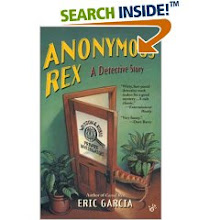
Reading Eric Garcia for Christmas
Click Here to Purchase Anonymous Rex
Vinegar Hill

Reading A. Manette Ansay for Christmas
Click Here to Purchase Vinegar Hill
Nicotine Dreams

Reading Katie Cunningham for Christmas
Click Here to Purchase Nicotine Dreams
Junot Diaz
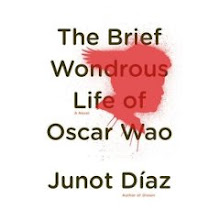
Pulitzer Prize Winner!!!
Click Here to Purchase The Brief Wondrous Life of Oscar Wao
Edwige Danticat

New Year's Reading
Click Here to Purchase Brother I"m Dying
Greed
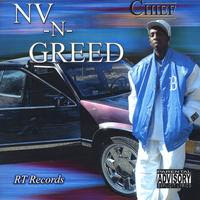
This Brother Is Scary Good
Sweet Music
One More Chance
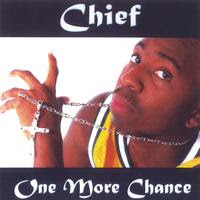
The genius Is At It Again/The Rapper CHIEF aka Sherwin Allen
Sandrine's Letter
Check out Sandrine's Letter To Tomorrow. You will like it, I insist.
Sandrine's Link
Cool Sites
- Akashic Books
- All or Nothing (My Other Blog)
- Asili The Journal
- Best Gamblling News Site
- Black Star Review
- Book Remarks
- Booktour.com
- Carolina Wren Press
- Click Here for Some Pretty Good Writing Contests
- Dedra Johnson
- Enrico Theoc
- Felicia Luna Lemus
- Florida Book Review
- Foreword Magazine
- Gambling Is Linked to Suicide
- Gambling Is Not Linked to Suicide
- Gaming Law Review
- Gene Durnell's The Thinking Journalist
- Gene Durnell's The Thinking Journalist
- Geoffrey Philp's Blog
- Get Chief's CDs on CD Baby
- Getting Past Gambling
- Gonzalo Barr's Blog
- Good Reads
- Hallema's Homepage
- Help With Gambling Addiction
- Jeremy Shipp's Website
- John Dufresne's Blog
- Leonard Nash Homepage
- Links to Seminole Casinos in Florida
- Martha Frankel's Homepage
- Michael A. Gonzales
- Miss Snark/ An Agent Gives Great Publishing Advice
- More Addiction Help
- No Gambling.com
- Pat MacEnulty
- ScrewIowa.com
- St. Louis Rams, The Greatest Show on Turf
- Suicide reference library
- T Cooper
- University of Florida
- Vicki Hendricks
- Walter Jacobs's Blog
- Writers Who Read
- Writing with Celia

All or Nothing

Editorial Reviews of All or Nothing
New York Times--". . . a cartographer of autodegradation . . . Like Dostoyevsky, Allen colorfully evokes the gambling milieu — the chained (mis)fortunes of the players, their vanities and grotesqueries, their quasi-philosophical ruminations on chance. Like Burroughs, he is a dispassionate chronicler of the addict’s daily ritual, neither glorifying nor vilifying the matter at hand."
Florida Book Review--". . . Allen examines the flaming abyss compulsive gambling burns in its victims’ guts, self-esteem and bank accounts, the desperate, myopic immediacy it incites, the self-destructive need it feeds on, the families and relationships it destroys. For with gamblers, it really is all or nothing. Usually nothing. Take it from a reviewer who’s been there. Allen is right on the money here."
Foreword Magazine--"Not shame, not assault, not even murder is enough reason to stop. Allen’s second novel, All or Nothing, is funny, relentless, haunting, and highly readable. P’s inner dialogues illuminate the grubby tragedy of addiction, and his actions speak for the train wreck that is gambling."
Library Journal--"Told without preaching or moralizing, the facts of P's life express volumes on the destructive power of gambling. This is strongly recommended and deserves a wide audience; an excellent choice for book discussion groups."—Lisa Rohrbaugh, East Palestine Memorial P.L., OH
LEXIS-NEXIS--"By day, P drives a school bus in Miami. But his vocation? He's a gambler who craves every opportunity to steal a few hours to play the numbers, the lottery, at the Indian casinos. Allen has a narrative voice as compelling as feeding the slots is to P." Betsy Willeford is a Miami-based freelance book reviewer. November 4, 2007
Publisher’s Weekly--"Allen’s dark and insightful novel depicts narrator P’s sobering descent into his gambling addiction . . . The well-written novel takes the reader on a chaotic ride as P chases, finds and loses fast, easy money. Allen (Churchboys and Other Sinners) reveals how addiction annihilates its victims and shows that winning isn’t always so different from losing."
Kirkus Review--"We gamble to gamble. We play to play. We don't play to win." Right there, P, desperado narrator of this crash-'n'-burn novella, sums up the madness. A black man in Miami, P has graduated from youthful nonchalance (a '79 Buick Electra 225) to married-with-a-kid pseudo-stability, driving a school bus in the shadow of the Biltmore. He lives large enough to afford two wide-screen TVs, but the wife wants more. Or so he rationalizes, as he hits the open-all-night Indian casinos, "controlling" his jones with a daily ATM maximum of $1,000. Low enough to rob the family piggy bank for slot-machine fodder, he sinks yet further, praying that his allergic 11-year-old eat forbidden strawberries—which will send him into a coma, from which he'll emerge with the winning formula for Cash 3 (the kid's supposedly psychic when he's sick). All street smarts and inside skinny, the book gives readers a contact high that zooms to full rush when P scores $160,000 on one lucky machine ("God is the God of Ping-ping," he exults, as the coins flood out). The loot's enough to make the small-timer turn pro, as he heads, flush, to Vegas to cash in. But in Sin City, karmic payback awaits. Swanky hookers, underworld "professors" deeply schooled in sure-fire systems to beat the house, manic trips to the CashMyCheck store for funds to fuel the ferocious need—Allen's brilliant at conveying the hothouse atmosphere of hell-bent gaming. Fun time in the Inferno.
Florida Book Review--". . . Allen examines the flaming abyss compulsive gambling burns in its victims’ guts, self-esteem and bank accounts, the desperate, myopic immediacy it incites, the self-destructive need it feeds on, the families and relationships it destroys. For with gamblers, it really is all or nothing. Usually nothing. Take it from a reviewer who’s been there. Allen is right on the money here."
Foreword Magazine--"Not shame, not assault, not even murder is enough reason to stop. Allen’s second novel, All or Nothing, is funny, relentless, haunting, and highly readable. P’s inner dialogues illuminate the grubby tragedy of addiction, and his actions speak for the train wreck that is gambling."
Library Journal--"Told without preaching or moralizing, the facts of P's life express volumes on the destructive power of gambling. This is strongly recommended and deserves a wide audience; an excellent choice for book discussion groups."—Lisa Rohrbaugh, East Palestine Memorial P.L., OH
LEXIS-NEXIS--"By day, P drives a school bus in Miami. But his vocation? He's a gambler who craves every opportunity to steal a few hours to play the numbers, the lottery, at the Indian casinos. Allen has a narrative voice as compelling as feeding the slots is to P." Betsy Willeford is a Miami-based freelance book reviewer. November 4, 2007
Publisher’s Weekly--"Allen’s dark and insightful novel depicts narrator P’s sobering descent into his gambling addiction . . . The well-written novel takes the reader on a chaotic ride as P chases, finds and loses fast, easy money. Allen (Churchboys and Other Sinners) reveals how addiction annihilates its victims and shows that winning isn’t always so different from losing."
Kirkus Review--"We gamble to gamble. We play to play. We don't play to win." Right there, P, desperado narrator of this crash-'n'-burn novella, sums up the madness. A black man in Miami, P has graduated from youthful nonchalance (a '79 Buick Electra 225) to married-with-a-kid pseudo-stability, driving a school bus in the shadow of the Biltmore. He lives large enough to afford two wide-screen TVs, but the wife wants more. Or so he rationalizes, as he hits the open-all-night Indian casinos, "controlling" his jones with a daily ATM maximum of $1,000. Low enough to rob the family piggy bank for slot-machine fodder, he sinks yet further, praying that his allergic 11-year-old eat forbidden strawberries—which will send him into a coma, from which he'll emerge with the winning formula for Cash 3 (the kid's supposedly psychic when he's sick). All street smarts and inside skinny, the book gives readers a contact high that zooms to full rush when P scores $160,000 on one lucky machine ("God is the God of Ping-ping," he exults, as the coins flood out). The loot's enough to make the small-timer turn pro, as he heads, flush, to Vegas to cash in. But in Sin City, karmic payback awaits. Swanky hookers, underworld "professors" deeply schooled in sure-fire systems to beat the house, manic trips to the CashMyCheck store for funds to fuel the ferocious need—Allen's brilliant at conveying the hothouse atmosphere of hell-bent gaming. Fun time in the Inferno.
At Books and Books
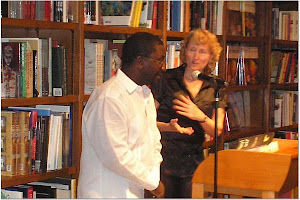
Me And Vicki at Our Reading
Bio
Preston L. Allen is the recipient of a State of Florida Individual Artist Fellowship in Literature and the Sonja H. Stone Prize in Fiction for his short story collection Churchboys and Other Sinners (Carolina Wren Press 2003). His works have appeared in numerous publications including The Seattle Review, The Crab Orchard Review, Asili, Drum Voices, and Gulfstream Magazine; and he has been anthologized in Here We Are: An Anthology of South Florida Writers, Brown Sugar: A Collection of Erotic Black Fiction, Miami Noir, and the forthcoming Las Vegas Noir. His fourth novel, All Or Nothing, chronicles the life of a small-time gambler who finally hits it big. Preston Allen teaches English and Creative Writing in Miami, Florida.